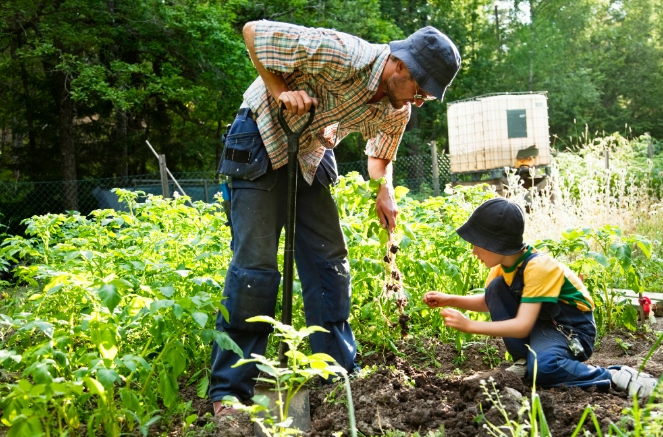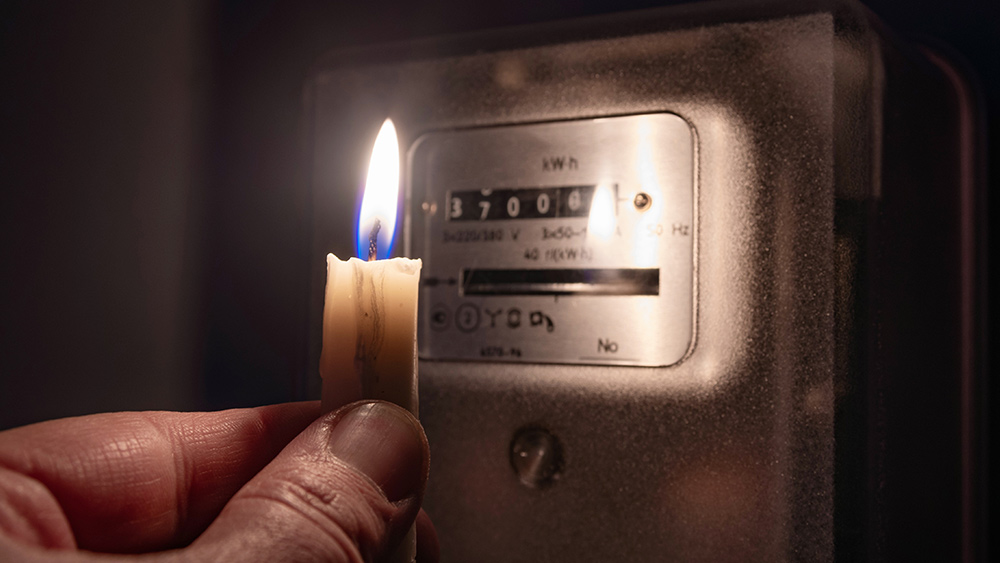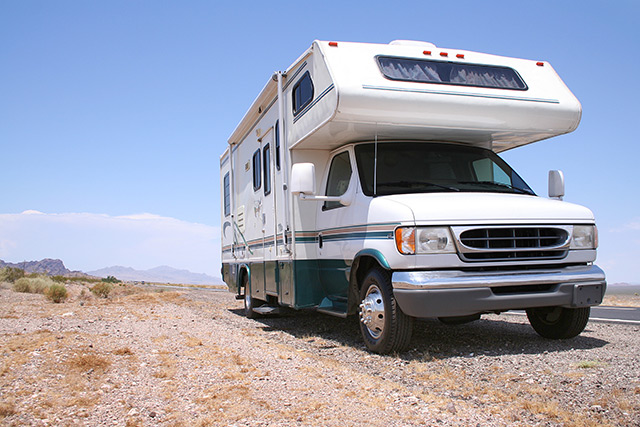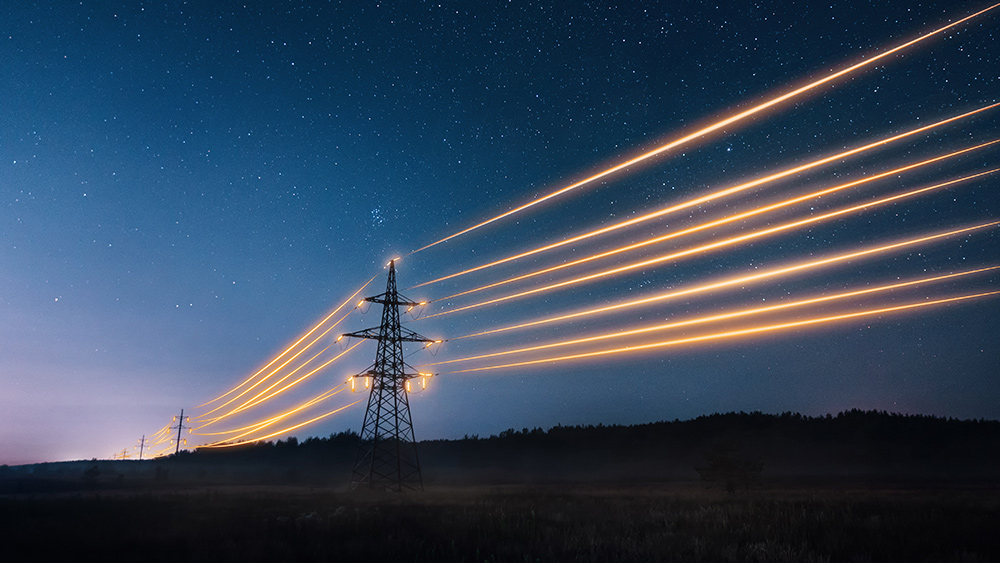Simple life: Recommended states for off-grid living
11/03/2023 / By Olivia Cook

Leaving society is a choice and a life-changing decision that doesn’t necessarily mean you have to live alone.
You can choose to live in a community of like-minded individuals – where you can escape the rat race and find your true self; live a simpler life in harmony with nature; prioritize your health and well-being; learn new skills towards self-reliance; and live in a community that shares your beliefs and values for a more fulfilling life. (Related: As financial terrorists economically rape Americans, panic internet searches for “live off grid” skyrocket.)
But before you check the recommended states for off-grid living, consider these factors that can help you determine whether the location fits with your off-grid plans.
Climate. You’ll want a place where the weather patterns are well-suited for growing crops for your food and medicine, raising poultry or livestock and others.
Population density and crime rate. This is something to consider if you choose to live in a community of like-minded individuals who take care of each other. Do the wider community’s ideologies (political, religious practices and traditions) fit with your own? (Related: Prep with Mike: Bugging out is better than staying in an apartment during a collapse.)
Power options. For a comfortable and efficient lifestyle while living off the grid, make you sure that you can tap into an existing grid or generate electricity through solar or other creative alternatives. (Related: Alternate power sources for your homestead.)
Price: Low land and property costs can often be misleading. Research diligently on how tax-friendly the states are and their laws on homesteading and off-grid living.
Safety. Take some time to find out about the likelihood of natural disasters in the area, such as earthquakes, hurricanes, landslides and tornadoes.
Water availability. If you want to thrive on your own, access to natural sources of fresh water and the ability to filter it is essential.
Here are some of the most recommended states in the U.S. for off-grid living. The descriptions for each are far from being exhaustive so you’ll need to do some more digging to find out if they’re compatible with your off-grid living plans.
Maine
With its long rugged coastline, abundant dense forests, rolling hills and plentiful freshwater resources, Maine is an ideal location for off-grid living. It is important to fully understand its state laws and regulations so you know where you can live legally in the Pine Tree State.
Maine is home to vast timberlands with a variety of hardwoods for building a house; streams and rivers that can be used for hydropower and other renewable energy sources; and a coastline that is rich with crabs, lobster and other seafood.
With the state’s strong emphasis on sustainable living, there’s plenty of land available at reasonable prices. The climate is also perfect for growing crops and raising livestock.
Maine also has a tight-knit community living off-grid that supports and encourages like-minded individuals.
Oregon
Oregon is a highly popular state of choice with homesteaders. People in the Beaver State are said to be quite independent as it has a climate that supports crops, livestock, orchards and seafood.
Hello Homestead provides information that can help you decide if the Beaver State meets your farming or homesteading needs.
You can also check out Primal Survivor‘s in-depth guide to Oregon’s off-grid laws.
Tennessee
The Volunteer State reportedly has a welcoming rural community of Amish and Mennonites who are helpful and accommodating to those looking to build a homestead and live off the grid. The locals are also willing to share their knowledge and experience with newcomers.
There’s plenty of available land with fertile soil for growing fruits, ornamentals and vegetables.
Tennessee is a budget-friendly state to consider. The state has a lot to offer in terms of land, and land prices are very affordable if you’re looking to build your dream homestead.
It is a tax-friendly state. The cost of living in Tennessee is generally lower than other states and is currently 10 percent less than the national average.
It has all four seasons of the year and its growing season averages an amazing 260 days due to its high humidity.
Check out PerSurvive‘s guide to living off grid in Tennessee.
Texas
The Lone Star State is known for its diverse landscape – from dry deserts to lush forests. It’s best to opt for the more fertile regions. Texas also offers a strong sense of independence and self-reliance traits valued by off-grid enthusiasts.
Beans, cantaloupe, corn, cucumbers, okra, peas, peppers, squash, tomatoes, watermelon and zucchini are just some of the spring and summer crops that grow well in Texas.
Its warm climate offers plenty of sunshine, which is ideal for homesteaders who want to harness solar energy to set up their off-grid homes. Lenient laws regarding gun ownership and low population density and cost of living are also pluses when considering living off-grid in Texas.
The Lone Star State is a great place to start a farm or a homestead and Hello Homestead gives the information you need to know on how to start homesteading in Texas.
Visit OffGrid.news for more stories like this.
Watch the following video to learn about the 10 best states in the U.S. to live off grid.
This video is from the Daily Videos channel on Brighteon.com.
More related stories:
Dr. Lee Merritt and Trent Loos discuss LAND GRABS in America – Brighteon.TV.
Amazon, Bill Gates, China buying up land all over the US in run up to Great Reset agenda.
Bill Gates granted legal approval to purchase 2,100 acres of farmland in North Dakota.
Why Bill Gates is buying up farmland across America?
Sources include:
Submit a correction >>
Tagged Under:
green living, homesteading, lifestyle, Maine, Off Grid living, Oregon, preparedness, prepper, prepping, self-reliance, survival, Tennessee, Texas, tips
This article may contain statements that reflect the opinion of the author
RECENT NEWS & ARTICLES
COPYRIGHT © 2017 OFFGRID NEWS




















